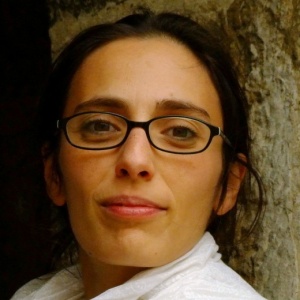FRANCE, MALTA, LONG WAY HOME | ASIA-EUROPE SHORT STORY CONTEST
Nadia Mifsud’s short story received 600 votes. This image was captured 1 September 2013 at 11:59 pm (Singapore SGT).

Nadia Mifsud, France-Malta
Made in Bangladesh
A short story by Nadia Mifsud
“[…] my country comes to me, tells me: Compatriota – I will always find you no matter what language you are speaking.”
Nathalie Handal
She can feel the anger churning up inside her as she spots the half a dozen plastic bags dumped carelessly in the hallway. She can hear their raucous laughter spilling all over the living-room as one by one they flop down onto the sofa and into the armchairs, enjoying the sound of their boisterous talk bouncing off the walls.
If they don’t lower their voices, she’ll have to go into the living-room and ask them to keep quiet. She doesn’t want them to wake up the baby. She has only just managed to get her to go to sleep. She slips silently into the kitchen, meaning to wash the baby’s empty bottle. She’s hoping that their excitement will quickly subside, praying that somehow they won’t notice her presence.
She cannot bear Fiona, nor any one of her friends. She cannot bear the way they squander money. Only fifteen, and their purses always bulging with money – money that they spend on clothes, shoes, trinkets they do not need. Spoilt, reckless girls! But most of all, she cannot bear this nasty, demeaning way that Fiona has of looking at her, the way she sneers at her – her, “the Desi nanny”. Makes her feel like rubbish. An untouchable. “Made in Bangladesh”, she once heard Fiona whisper loudly to her friends in her snobbish, mocking voice. Snorts and half-stifled laughter filled the living-room while she continued to clean the baby’s highchair, seemingly oblivious, gritting her teeth, endeavouring to keep her hands steady.
“Made in Bangladesh”, “Desi nanny”. She’d been here half her life, yet the other half – the years of complete and utter misery that she had spent in Hazaribagh with her family – was registered all over her face, commanded every one of her movements, seeped through her thoughts, transpired through even the tiniest of her gestures. She used to think it would all somehow fade away slowly, with the passing of years; she had even been tempted to believe, when she made it into University, that she was no different from her friends who were born here. Yet, this feeling that she was actually a foreigner, someone who had landed here by pure chance, had been growing stronger lately – a gnawing ache that seemed to spread throughout her body ever since she had received news of her mother’s death back in Hazaribagh.
She cannot even bring herself to enter a shoe shop these days. She simply won’t purchase anything made out of leather – the smell is enough to stir up a queasiness in her that is beyond her control. She struggles continually to smother the resentment building up inside her as she counts the number of leather bags on the underground, in the streets, in shop windows. Hazaribagh. It all comes back to her. The stench. The squalor. The fumes. The unnaturally red, green and turquoise blue waters in the open gutters that ran along every alley. The black bubbling water of the Buriganga – the dead Buriganga. Young children playing on huge mounds of leather shavings and other waste. Her father, who died while cleaning the sludge tank. She was only four then. Her mother sent her two brothers, thirteen and eleven respectively, to work at the tannery. From early morning to late evening, seven days a week, Ramu would soak hides in a chemical cocktail meant to dissolve any remaining hair residue. Sanrayan would, more often than not, be operating the fleshing machine. She still recalls their scarred skin, the sores that would itch all night, the burning eyes. Her mother had no choice, really. She knew they wouldn’t manage without that extra bit of income.
Then, there was Kate – a walking miracle. Good old Kate who somehow managed to haul her out of that hellish world when she had just turned thirteen, and brought her here. Gave her a good education too. Allowed her to have a proper adolescence. Taught her that it was possible to dream, necessary to have ambition.
She will always remember how she had travelled from Bangladesh all the way to the UK with this gut feeling that she would never see her mother again, that she had abandoned her family. Or was it they who had given her up? One less mouth to feed. One burden removed. For the past thirteen years, she had been constantly shifting between thankfulness and guilt, shame for her country and contempt for the consumer society she felt engulfed in.
She hears the baby stirring in the bedroom. She makes her way upstairs, accompanied by this one question: was there any place she could truly call home?
No comments:
Post a Comment